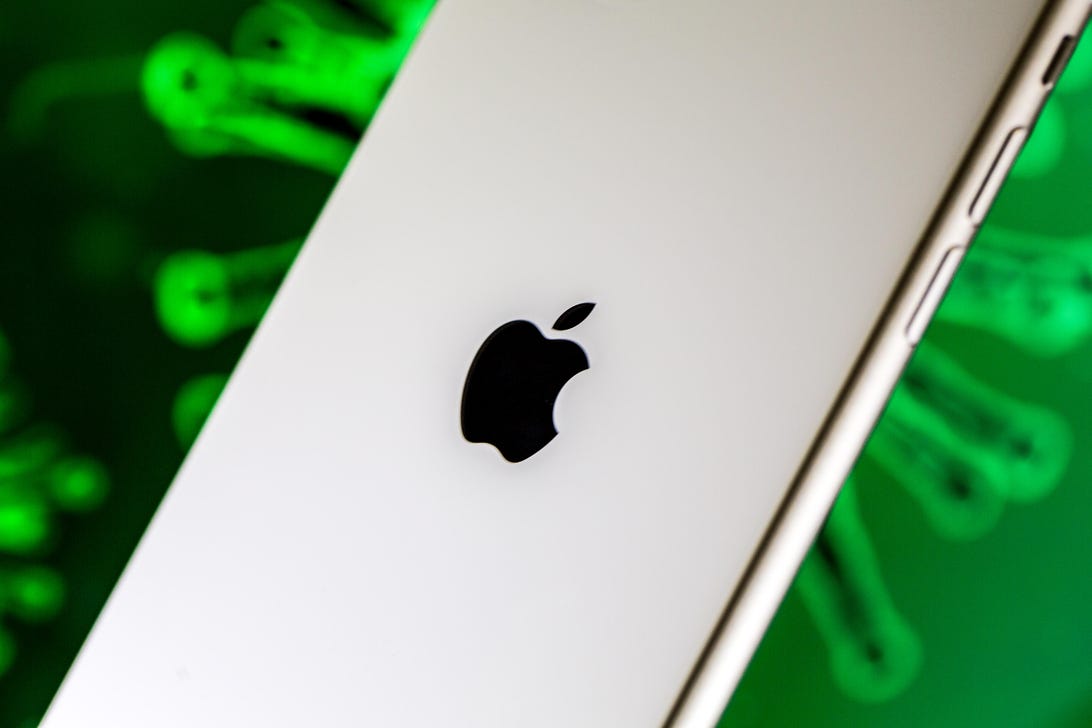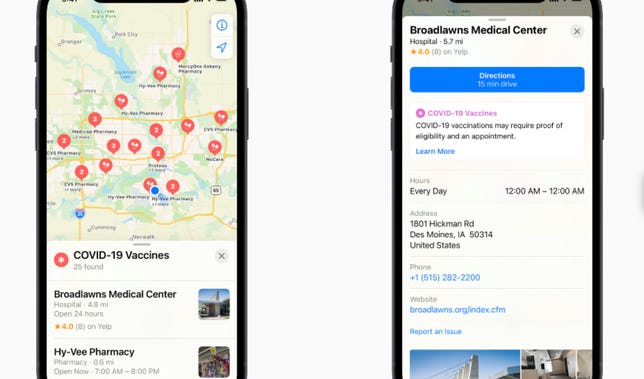
The coronavirus could be making a comeback despite vaccination efforts.
Image by Pixabay/Illustration by CNETMany people throughout the US opted not to get a life-saving COVID-19 vaccine, despite its widespread availability throughout the spring and summer. Now coronavirus cases and deaths are ticking up across the US as we head into the fall, raising alarms with health officials and, apparently, Apple too.
The tech giant's already told employees it's delaying return-to-office plans until October at the earliest, mirroring moves from 2020 when companies began shifting schedules in response to worsening conditions. Apple was one of the first major companies to warn about disruptions from the coronavirus back in February of last year, a full month before the World Health Organization declared a pandemic and governments around the world started instituting lockdowns. Rumors are already swirling that Apple's next major product announcement will be held virtually as well.
On Tuesday afternoon, it may take another more public step when CEO Tim Cook is inevitably asked questions about the pandemic by Wall Street analysts following the release of the company's fiscal third-quarter results. And more eyes than usual may be on Cook as he speaks.
Apple's fiscal third quarter, which falls in the spring months ended in June, is typically the last earnings release before the company announces its next slate of iPhones. But last year at this time, Cook & Co. warned investors the iPhone would be delayed "a few weeks" from its typical September launch. There's good reason to believe Apple could pull a repeat performance, due to the combination of deepening coronavirus cases around the world and warnings from major chip buyers and manufacturers that product shortages may stretch another year or more.
"We have a long way to go yet," Pat Gelsinger, head of chipmaking giant Intel, told the Wall Street Journal last week.
Apple's still expected to report $1 of profit per share, according to analyst surveys published by Yahoo. That would amount to a jump of 50% from the same time a year ago, off nearly $73 billion in revenue.
But larger questions still remain about the coronavirus and the potential disruptions it could cause.

Apple's helped fight coronavirus with new features in its phons, like a list of places to get COVID tests and vaccines.
AppleCharting a path
While Apple's short-term plans may change due to COVID-19, analysts say they're closely watching its newest iPads, Mac computers and subscription efforts. For years, Apple's fate has been tied to the iPhone, which typically represents about half of the company's annual revenue. But in 2019, Apple started launching new subscription services, including its $5 per month Apple TV Plus for movies and TV, $5 monthly Apple Arcade for games and, last year, Apple Fitness Plus workout classes for $10 per month.
Each has received positive reviews, topped by Apple TV Plus earning 35 Emmy nominations earlier this month, led by its breakout sports comedy Ted Lasso.
Apple's subscriptions have grown to represent almost half of the company's overall services business, adding to its already popular App Store and iTunes music and movie store businesses. "We think services trends could trend more like a recurring revenue stream with less seasonal volatility in the coming years," analysts at Cowen wrote in a report to investors earlier this month.
The newest iPads and Mac computers are also garnering positive response. CNET Editor Scott Stein says Apple's home-grown M1 chips are "a leap up" and "dripping with power." And consumers are buying so many of the devices that Apple said it's struggling to keep them in stock.
Apple said it didn't know how long it would struggle to meet demand, but it expects to be "supply-gated, not demand-gated" for the foreseeable future. Loup Ventures analyst Gene Munster said in a blog post that he expects Apple will catch up to demand by the fall, "which leads us to believe the best days are still ahead for Mac and iPad."
Despite the Mac and iPad struggles, the iPhone appears to be humming along. Chatham Road Partners analyst Colin Gillis said in a note to investors that he expects "Phone as Fashion" will push further sales as people "want to show off the latest device" after a year in isolation. Canaccord Genuity analyst T. Michael Walkley, meanwhile, said he believes that 5G wireless is convincing people to open their wallets as well. And Apple's rumored to have already ordered more than 100 million chips for its next-generation iPhone, expected later this year.
In the meantime, the larger answers about the coronavirus are still unclear. The federal government is continuing to advocate for vaccines, and a potential full FDA authorization for the injections is expected in the coming months. "The vaccine is free, safe and effective," President Joe Biden said in June. Apple CEO Cook's anxiety about the future may be a result of whether anyone's still listening.
Article From & Read More ( Apple could signal new coronavirus, chip shortage troubles before iPhone 13 release - CNET )https://ift.tt/3f1PUMt
Technology
Bagikan Berita Ini














0 Response to "Apple could signal new coronavirus, chip shortage troubles before iPhone 13 release - CNET"
Post a Comment